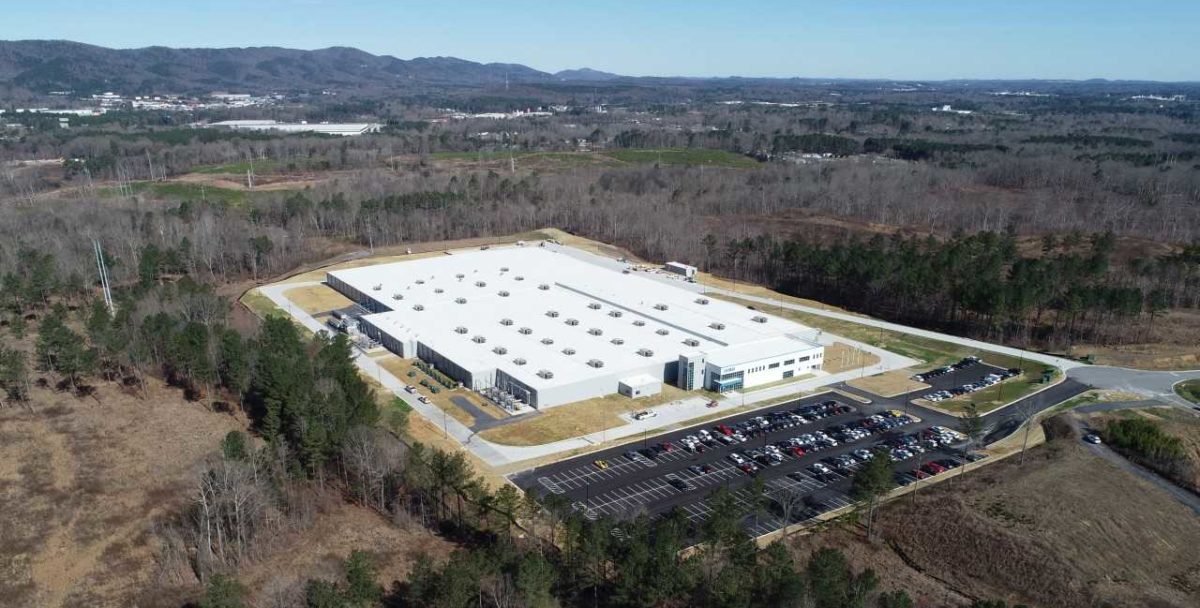In what is being called the largest investment in US solar history, Q Cells has announced that it will invest more than $2.5 billion to build a complete solar supply chain in the United States. This makes the South Korean company, a subsidiary of Hanwha Solutions, the first to establish a fully integrated, silicon-based solar supply chain in the US market.
Q Cells intends to break break ground on the new, state-of-the-art facility in Bartow County, Georgia, where it will manufacture 3.3 GW of solar ingots, wafers, cells, and finished modules. It also has a facility in Dalton, Georgia, where it will assemble an additional 2 GW of modules. With plans to boost Dalton production by another 5.1 GW, Q Cells anticipates that its total production in the state will reach 8.4 GW in 2024.
The announcement was made by Q Cells’ parent company, Hanwha Solutions, headquartered in Seoul, South Korea.
“As demand for clean energy continues to grow nationally, we’re ready to put thousands of people to work creating fully American Made and sustainable solar solutions, from raw material to finished panels,” said Justin Lee, CEO of Q Cells. “We are committed to working with our customers as well as national and Georgia state leaders to bring completely clean energy to millions of people across the country.”
Q Cells cited Senator Jon Ossoff’s Solar Energy Manufacturing for America Act, now part of the Inflation Reduction Act (IRA), as playing a key role in promoting additional investments in the United States. The IRA offers numerous tax credits for clean energy manufacturing.
Q Cells has been a top player in the US solar market for the past five years, according to the Q4 2022 US PV Leaderboard report by Wood Mackenzie. It has also been the leading module provider for the US commercial sector since 2019. But now, Q Cells plans to thwart the solar supply chain challenges that are currently stalling development by producing ingots, wafers, and cells, as well as modules.
Q Cells is already involved in the production of silicon. In March 2022, parent company Hanwha Solutions became the largest shareholder in REC Silicon, a silicon producer based in Moses Lake, Washington. That facility is expected to start production in the second half of this year.
Back in March 2022, Lee hinted at the company’s intention to manufacture across the solar supply chain.
“Our commitment to the US is more serious than ever before,” said Lee. “We plan to make investments to secure capabilities across the entire solar supply chain, with the goal of supplying our partners with ‘Made in America’ products that will help the US regain its leadership in clean energy solutions.”
US President Joe Biden made the following statement on QCells' announcement:
“Hanwha Q CELLS announcement to make the largest solar investment in U.S. history is a big deal for Georgia’s working families and the American economy. And, this investment is a direct result of my economic plan and the Inflation Reduction Act. Hanwha’s Q CELLS investment will create thousands of good-paying jobs in Georgia, many of which won’t require a four-year degree. It will bring back our supply chains so we aren’t reliant on other countries, lower the cost of clean energy, and help us combat the climate crisis. And, it will ensure that we manufacture cutting-edge, solar technology here at home. It’s a win for workers, consumers, and our climate. Under my leadership, the United States can and will lead the world in manufacturing once again.”
*This article was updated on 12/01/2023 to add President Joe Biden's statement.
This content is protected by copyright and may not be reused. If you want to cooperate with us and would like to reuse some of our content, please contact: editors@pv-magazine.com.




Now they need their solar on that factory rooftop of course ASAP to show their commitment to deploying their equipment!
And add in a carport system in that parking lot to really shine!